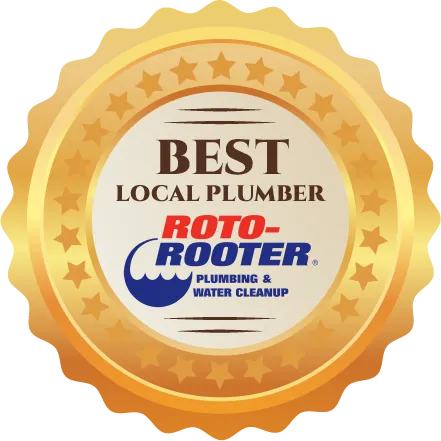How to Prevent FOG Buildup in St. George Kitchen Drains
You know how frustrating it is when your kitchen drains start slowing down. In St. George, the unique combination of hot, arid climate and local cooking habits can lead to FOG (fats, oils, and grease) buildup in your drains. But you can take simple steps to prevent it. Ever thought about how your daily routines might contribute to the problem? Let’s explore some practical habits and solutions you can adopt to keep those drains clear and avoid costly repairs.
The hot temperatures in St. George can cause fats and oils to remain in a liquid state longer, allowing them to travel further down the drain before solidifying. This, combined with popular local cuisine that often includes rich, greasy ingredients, can exacerbate the issue. To prevent FOG buildup, consider scraping leftover food and grease from plates and pans into the trash before washing them. Additionally, installing a mesh drain strainer can catch larger food particles, preventing them from entering the plumbing system.
By adopting these simple habits and being mindful of how local conditions affect your kitchen drains, you can keep them clear and functioning properly, saving yourself the headache and expense of dealing with clogs.
Understanding the Causes of FOG Buildup
When it comes to FOG (fats, oils, and grease) buildup in kitchen drains, understanding the causes is vital for prevention, especially in regions with colder climates. In areas where temperatures drop significantly, FOG solidifies more quickly in the plumbing systems, exacerbating the problem. For instance, in cities like Minneapolis or Toronto, the cold weather can cause fats and oils to harden faster, leading to more frequent blockages during the winter months.
Moreover, locations with older infrastructure, such as New York City or San Francisco, may face additional challenges. Older pipes are often narrower and more prone to corrosion, making them more susceptible to FOG accumulation. Residents in these areas should be particularly vigilant about what goes down their drains.
Cooking oils, bacon grease, and sauces might seem harmless, but they solidify as they cool, sticking to pipe walls over time. Even if you run hot water, it’s a temporary fix; once the water cools, FOG hardens again.
In regions with hard water, like Las Vegas, mineral deposits can further aggravate the issue by providing additional surfaces for FOG to cling to.
Think about those food scraps you put down the disposal. They combine with FOG, accelerating buildup. It’s important to wipe greasy pans with paper towels before washing them. Pour used oil into containers instead of the sink.
The Impact of St. George’s Climate on Kitchen Drains
In St. George, the warm, dry climate presents unique challenges for maintaining kitchen drains. The high temperatures cause oils and fats to solidify quickly once they enter the drain, leading to increased FOG (fats, oils, and grease) buildup and potential clogs.
The arid conditions also mean there’s less humidity to assist in washing away greasy residues, allowing them to accumulate more rapidly and exacerbate blockages.
Moreover, St. George’s mineral-rich water contributes to scale deposits within the pipes, further narrowing the diameter and providing surfaces for FOG to adhere to, thus compounding the issue.
Being mindful of these local factors can help you keep your kitchen drains clear and functioning smoothly.
Effective Kitchen Habits to Prevent Drain Blockages
To effectively prevent drain blockages in areas prone to cold winters, adopt mindful kitchen habits that minimize the introduction of FOG (fats, oils, and grease) and other debris into your drains.
In regions with hard water, build-up from mineral deposits can exacerbate clogs, so it’s crucial to be proactive. Start by scraping food scraps into the trash before rinsing dishes. Use a sink strainer to catch stray particles, preventing them from slipping down the drain. Regularly clean the strainer to keep it effective.
Be cautious with what you rinse down the sink—avoid flushing down coffee grounds, eggshells, or fibrous vegetable peels, as they can lead to clogs, especially in older plumbing systems common in historic neighborhoods.
Run hot water down the drain after using the sink to help clear any potential buildup, particularly in homes that experience extreme cold, where grease can solidify more quickly.
Additionally, avoid using chemical drain cleaners frequently, as they can damage pipes over time. Instead, maintain a routine of these habits to guarantee smooth, clog-free drains, even in the challenging conditions of harsh climates and aging infrastructure.
Proper Disposal Methods for Fats, Oils, and Grease
If you’re determined to keep your kitchen drains in urban areas like New York City free from clogs, it’s essential to dispose of fats, oils, and grease (FOG) properly. In densely populated cities, sewer systems are often older and more susceptible to blockages, making proper disposal even more crucial.
Start by letting FOG cool and solidify after cooking. Once solid, scrape it into a container, seal it, and throw it in the trash. Don’t pour grease down the sink; even small amounts can accumulate and cause blockages in the city’s aging infrastructure.
Use a paper towel to wipe greasy pans before washing to prevent residue from entering the drain. For larger quantities of FOG, consider recycling programs dedicated to turning waste grease into biofuel. Many metropolitan areas, like San Francisco, have initiatives to repurpose cooking oil.
Additionally, avoid using hot water to flush FOG down the drain, as it only temporarily liquefies the grease, leading to future clogs. In places with colder climates, such as Chicago, the grease can solidify even faster in pipes, exacerbating the problem.
The Role of Regular Maintenance in Keeping Drains Clear
Proper disposal of FOG is just the first step in keeping your kitchen drains clear and efficient, especially in areas with older plumbing infrastructure, such as historic districts or older urban neighborhoods.
These locations often face unique challenges due to outdated pipes that are more prone to clogs and blockages. Regular maintenance plays a vital role in preventing these issues and ensuring smooth drainage.
For example, in cities with hard water, mineral buildup can exacerbate drainage problems, making routine inspections even more crucial. Schedule these inspections to catch any issues early, looking out for slow drainage or unusual odors that could signal a developing blockage.
Cleaning your drains regularly is essential—use a plunger or a drain snake to remove minor obstructions before they become major problems. In coastal areas, where sand and grit can enter the plumbing system, it’s important to clean the sink strainer frequently to prevent debris from entering the pipes.
By staying proactive and incorporating these maintenance habits, you’ll extend the life of your plumbing system and save yourself from costly repairs.
Consistent attention keeps your kitchen running smoothly and stress-free, even in locations with specific plumbing challenges.
Utilizing Natural Solutions for Drain Cleaning
In areas with hard water, such as regions with a high mineral content in the water supply, maintaining clear drains can be particularly challenging. The minerals can accumulate and contribute to clogs over time.
While chemical drain cleaners are a common solution, they can be harsh and damaging to both your pipes and the environment. Instead, consider natural solutions that are gentle yet effective.
One simple method is to pour a mixture of baking soda and vinegar down the drain. Start by adding half a cup of baking soda, followed by a cup of vinegar. Let it fizz for about 15 minutes before flushing with hot water. This combination naturally breaks down grease and grime without harmful chemicals, which is especially beneficial in areas where water conservation is a priority.
In coastal regions where high humidity can lead to mold and mildew growth in drains, lemon juice is an excellent choice. Its acidity helps dissolve buildup and leaves a fresh scent.
Simply squeeze lemon juice into the drain and follow with hot water. By using these natural solutions, you can keep your kitchen drains clear and environmentally friendly, while also addressing location-specific challenges.
When to Seek Professional Help for Persistent Issues
Ever wonder when it’s time to call in the professionals for your kitchen drain issues in Seattle? If you’ve tried natural solutions and your drains are still slow or clogged, it might be time to seek expert help.
In this rainy city, persistent FOG (fats, oils, and grease) buildup can cause stubborn blockages that homemade remedies can’t handle. The humidity and frequent rainfall can exacerbate these issues, leading to more severe drainage problems.
If you notice foul odors, water backing up, or strange gurgling sounds, these are signs that professional intervention is needed.
Don’t wait until a full-blown plumbing emergency arises. Professionals in the area have the tools and expertise to clear severe blockages and prevent future issues, even in Seattle’s damp climate.
Regular maintenance and inspection can save you from costly repairs down the line. Trust a pro when DIY efforts just aren’t cutting it, ensuring your kitchen drains function smoothly in the Pacific Northwest’s unique environment.
Conclusion
To keep kitchen drains in St. George clear, it’s essential to consider local challenges such as the area’s hard water, which can exacerbate FOG (fats, oils, and grease) buildup. Adopt proactive habits like scraping food into the trash and using sink strainers. Regularly flush with hot water, which is particularly important given the local water hardness, and avoid rinsing fats or oils down the sink. Embrace natural cleaning solutions like baking soda and vinegar, which are effective against mineral deposits, and perform regular maintenance checks to catch issues early. If problems persist, don’t hesitate to seek professional help to ensure your drains remain free of FOG buildup. Stay diligent, and your drains will thank you!
Tags





